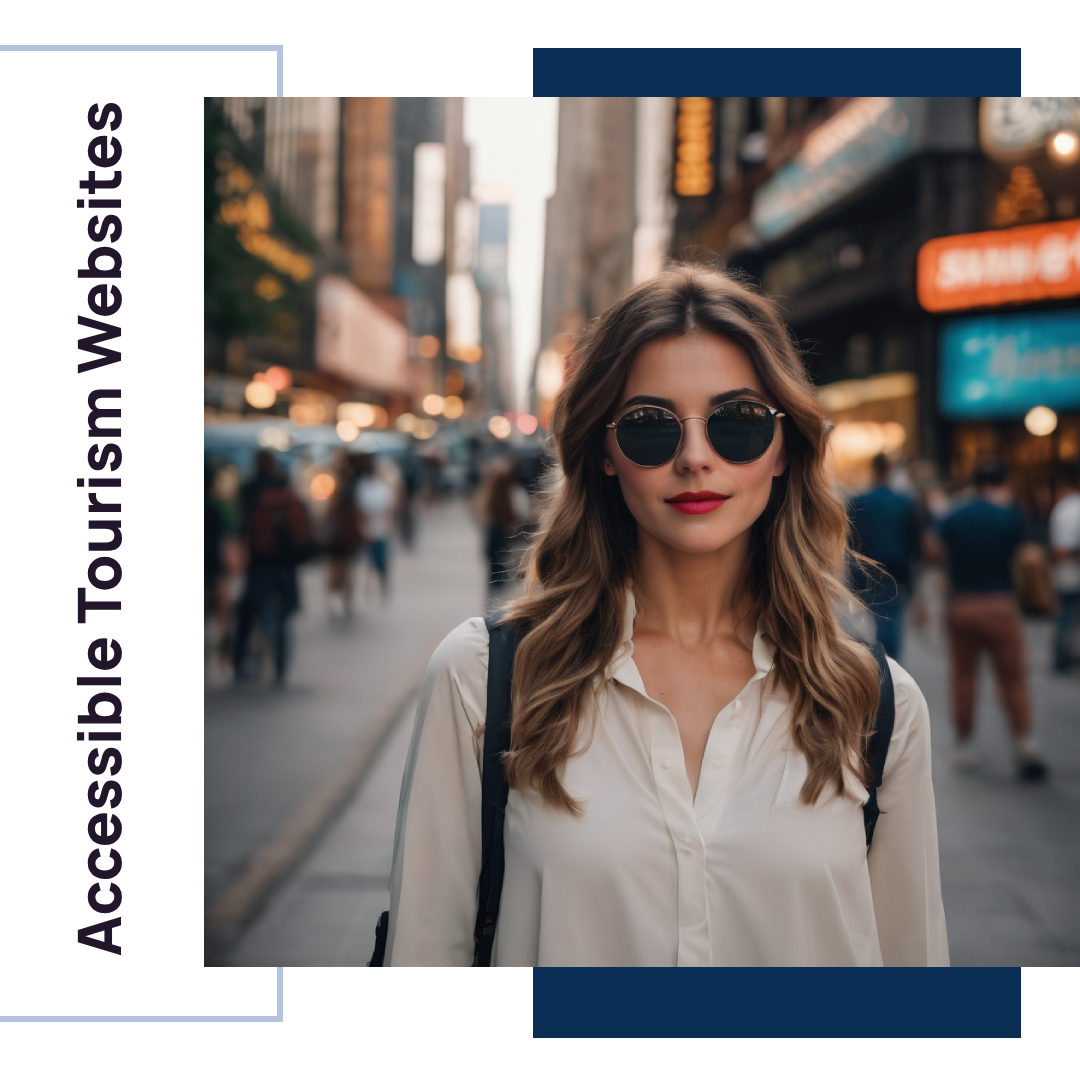
Accessible tourism website
Imagine picturing yourself scaling snow-capped peaks in Yosemite, strolling through bustling New York City streets, or soaking up the sun on Miami’s vibrant beaches.
But then, the dream hits a snag – the official tourism website is a maze of broken links, confusing layouts, and inaccessible forms. Suddenly, that American adventure feels out of reach.
A recent study revealed that 72% of popular tourism websites in the US fail basic accessibility standards.
This digital divide not only excludes millions of potential visitors but also damages business reputations and hinders economic growth.
Let’s dive into the pros of a 100% accessible and ADA-compliant tourism website.
Increased Audience Reach:
✅ Tap into the vast market of people with disabilities and their families. 26% of Americans (80 million in the EU) have a disability, representing a significant segment of potential customers.
✅ Attract seniors and families with young children who often have accessibility needs. These demographics represent fast-growing travel markets.
✅ Improve search engine optimization (SEO). Accessibility features like semantic markup and clear structure can boost website ranking, making it easier for potential visitors to find you.
Enhanced Brand Reputation:
👉 Demonstrate inclusivity and social responsibility, building trust and positive brand perception. This can attract ethically conscious travelers and generate positive word-of-mouth.
👉 Differentiate yourself from competitors. Stand out as a forward-thinking and inclusive business in the tourism industry.
👉 Gain positive media coverage and recognition for your accessibility efforts. This can further raise brand awareness and attract new customers.
Improved User Experience and Conversion Rates:
💥 Everyone benefits from a user-friendly website with clear navigation and simple language. This leads to higher visitor satisfaction and engagement.
💥 Reduce bounce rates and increase website conversion rates. Accessible websites make it easier for visitors to find what they need and book their travel, leading to higher sales.
💥 Minimize customer service inquiries and support costs. An accessible website answers common questions proactively, reducing frustration and support volume.
Compliance and Legal Benefits:
➡️ Avoid potential legal and reputational risks associated with non-compliance with accessibility laws like the ADA and the Web Accessibility Directive (WAD).
➡️ Future-proof your business by preparing for stricter accessibility regulations and changing demographics.
➡️ Benefit from government grants and incentives available for businesses that demonstrate commitment to accessibility.
Contact Web compliances for a free website accessibility audit and let’s make the magic of American tourism accessible for all!